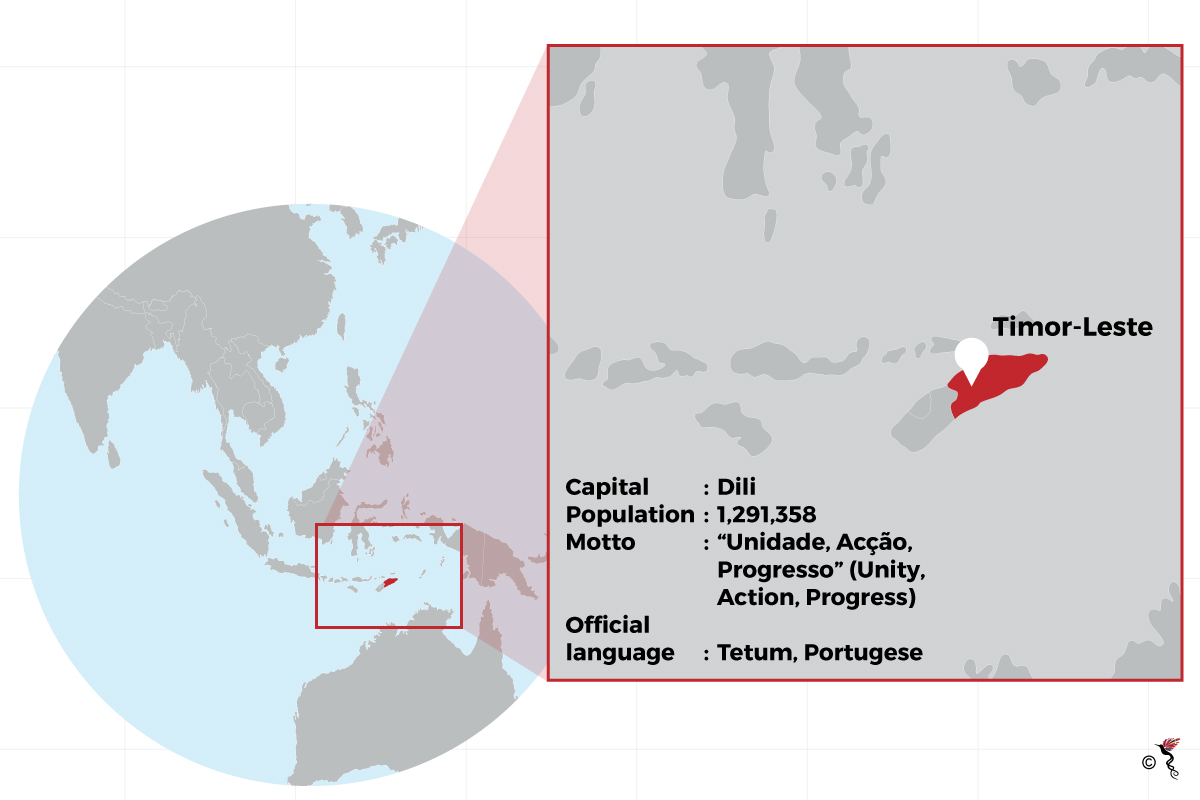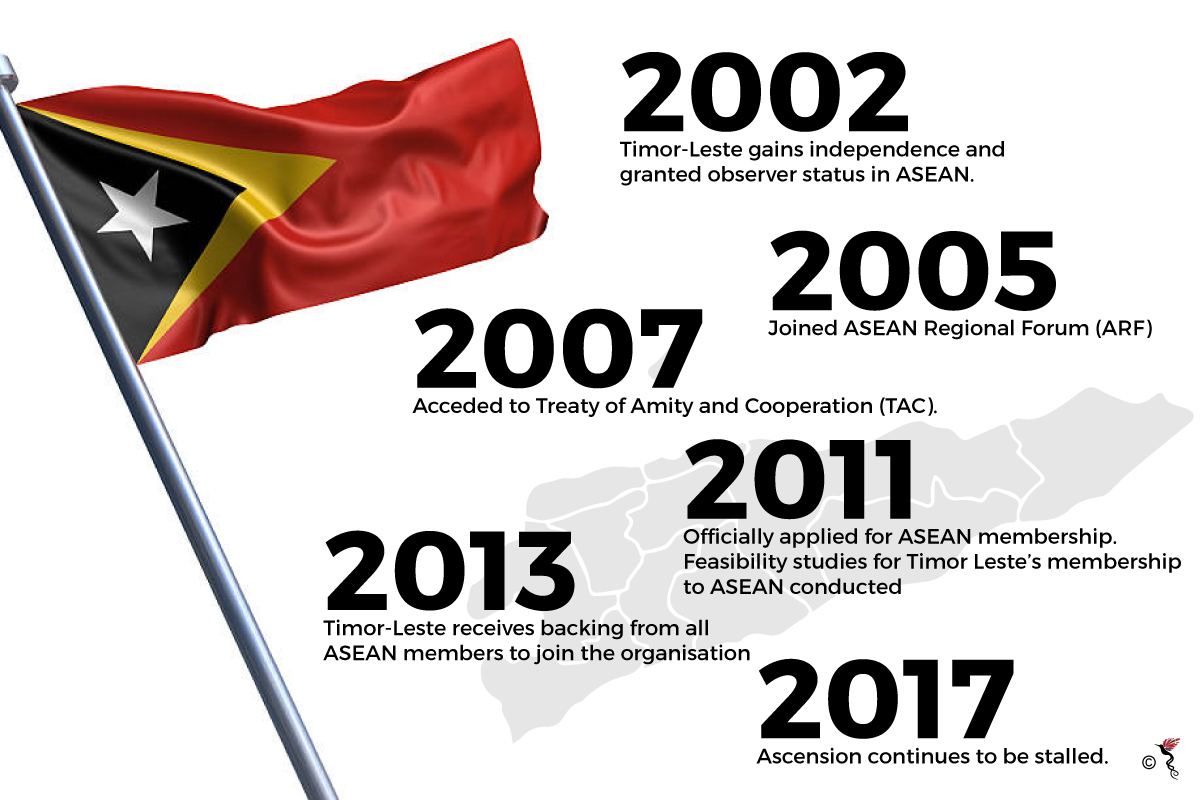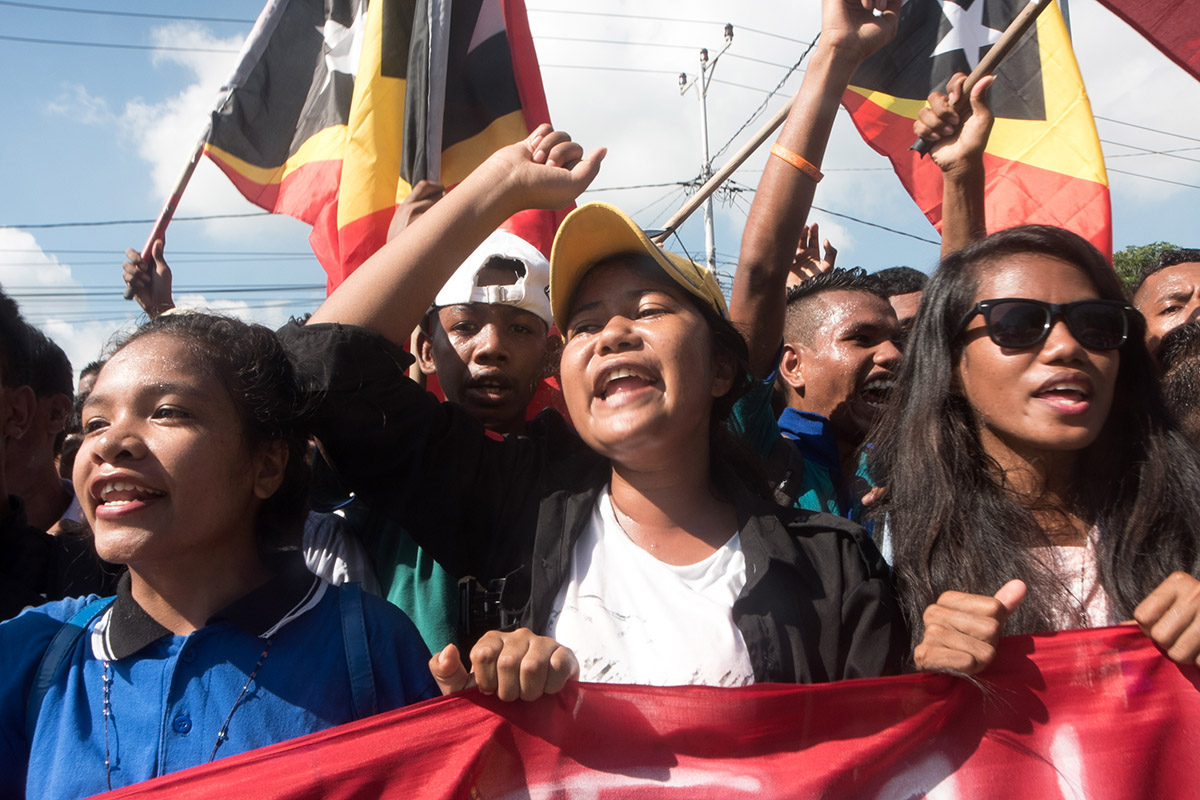ASEAN was touted to admit its 11th member last year – The Democratic Republic of Timor-Leste also known as East Timor – but that failed to happen.
Timor-Leste is located at the eastern tip of the Indonesian archipelago. It encompasses the eastern half of the island of Timor, two nearby islands (Atauro and Jaco) and an exclave on the western side of the island (Oecusse District) – surrounded by Indonesia.

It is a fresh democracy – having gained independence from Indonesia in 2002. With a population of approximately 1.3 million, Timor-Leste has a relatively young citizenry with 61.23 percent being below the age of 24.
The topic of ascension to ASEAN is easy enough to understand. Looking at a map, it makes geographic sense for the young nation to be part of an organisation that has the words “Southeast Asian” in it.
However, the process of ascension has always been a challenging one.
After gaining independence, East Timor was granted observer status in ASEAN before officially submitting for membership in 2011 during Indonesia’s chairmanship of the association. Soon after, a feasibility study was conducted and by 2013, then Secretary General of ASEAN, Le Luong Minh indicated that all ASEAN member states were on board with Timor-Leste being admitted into ASEAN.

But the buck has since stopped there. Every year since, talks on Timor-Leste’s ascension have always elicited the similar response – that it isn’t ready yet to join the association.
Bringing in Timor-Leste
The reason being, the country is not economically up to par with other ASEAN members and if admitted, it risks pulling down the association as a whole.
However, this is inaccurate. Firstly, although Timor-Leste is the smallest economy amongst other ASEAN member states, it outperforms three countries – Myanmar, Lao and Cambodia – on the Human Development Index (HDI). Its economic growth rate, according to the Asian Development Bank is slated to grow at 6 percent in 2018, close to the 7 percent growth rates bracket enjoyed by developing CLMV (Cambodia, Lao, Myanmar, Vietnam) economies.
Secondly, ASEAN has set a precedent of bringing in countries with developing economies like Myanmar, Lao and Cambodia. Moreover, Myanmar’s admission into ASEAN came in the same year the US imposed sanctions on the then junta state. The admission of these three countries have immensely benefitted their economies by way of regional trade agreements and provision of greater market access. This in turn, has had positive effects on the citizenry of these countries whom, when polled, had the closest personal affinity towards ASEAN compared to other member states.
Besides that, Timor-Leste has made great strides towards embracing democracy and have instituted reforms to ensure a credible electoral process. According to the Economist Intelligence Unit’s 2016 Democracy Index, the country was ranked most democratic in Southeast Asia. Given the country’s traumatic past, its citizens have shown commitment to improve the nation’s democracy and have actively engaged in the democratic process. The previous elections held in the island nation have all been universally recognised as free and fair.
In 2016, Former President and Prime Minister of Timor Leste, Kay Rala Xanana Gusmao told Malaysian news wire, Bernama that in his visit to the region three years earlier, all countries in the ASEAN bloc had been supportive of his country’s bid for a membership in ASEAN.
Singapore has historically opposed Timor-Leste’s accession due to economic reasons but has since been accepting of the country’s membership application. When its Prime Minister visited his counterparts in Singapore and the Philippines, both expressed their support of Timor-Leste’s accession.
Timor Leste has also fulfilled another criterion for membership which is to open up embassies in every other ASEAN member state.
In a response published by Singapore based think tank, Yusuf Ishak Institute to a question on the dilemma of ASEAN’s enlargement to include Timor-Leste, Former Secretary General of ASEAN, Ajit Singh said that the ASEAN Secetariat should welcome its application having done the same for CLMV nations prior to this.
“Regarding the concern of Timor-Leste as a “veto-wielding” member, one should be reminded that the CLV countries had communist backgrounds and Myanmar’s admission was then strongly opposed by forces outside ASEAN. Yet ASEAN stood its ground and welcomed these new members,” he said.
“Why not Timor-Leste now?”
Recommended stories:
